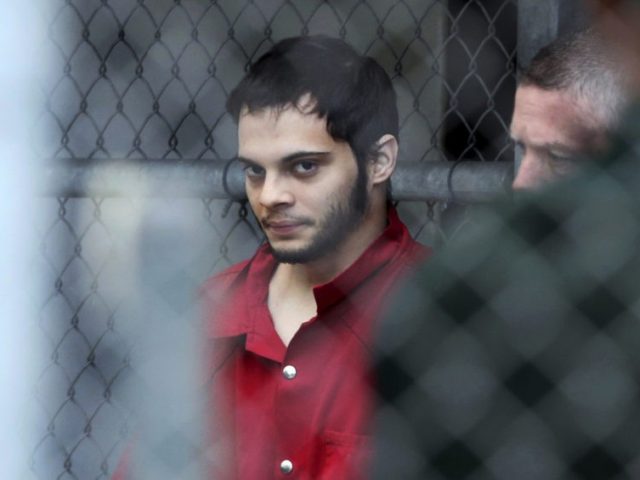The search for motives in 26-year-old Esteban Santiago’s shooting spree at the Fort Lauderdale-Hollywood International Airport continues, but the authorities say they cannot find any ties to the Islamic State (ISIS) or other international terrorist organizations.
Miami Herald reports that, despite rumors to the contrary, nothing in Santiago’s social media history indicates he was “an Islamic convert inspired by terrorist organizations.” According to the Herald’s law enforcement source, the airport shooting was clearly a planned attack, but Santiago appears to have planned it on his own, for reasons known currently only to himself.
By now it is well-known that Santiago approached the FBI in Anchorage two months ago in an “agitated and incoherent” state, claiming there were voices in his head urging him to join ISIS. He also claimed the CIA was controlling his brain and forcing him to watch terrorist training videos. He spent four days in a psychiatric hospital after that, but his gun was returned to him after he was released, and he was not put on any no-fly lists.
There are also some reports of domestic disturbances on his record from Anchorage, including his girlfriend accusing him of trying to strangle her on two occasions.
The Herald found people in Santiago’s Anchorage neighborhood generally unwilling to discuss him, although one neighbor said there were no signs of radical activity or contact with suspicious characters.
Post-traumatic stress disorder has also been floated as a theory for Santiago’s actions, as he served in Iraq when he was 20 and was treated for mental health issues when he returned. The New York Daily News points out that two “father figures” from his unit were killed by a roadside bomb, although it is not known if Santiago was close to them. Some reports, such as the one by ABC News on Tuesday, describe the two fallen soldiers as Santiago’s “friends,” but that could just be a reference to them serving in the same unit.
Santiago’s former girlfriend Michelle Quiñones told ABC that he “started to become unhinged” after he returned from Iraq and got worse after the death of his father.
“There was something in his voice that wasn’t right. He needed to tell somebody something. He couldn’t. He just didn’t dare to,” she said, adding that the couple notified the Department of Veterans Affairs about his problems, but “they did nothing.”
Santiago’s brother Bryan agreed that “you could just sense that he’d changed” after he returned from Iraq, becoming bitter and withdrawn, instead of “calm and humorous.”
Bryan criticized both the psychiatric hospital for releasing Esteban after only four days of treatment and the federal government for allowing him to keep his gun. KTUU News notes that he was able to get a job with a security firm in Anchorage despite his history.
Another Miami Herald report states that Esteban Santiago was awarded several medals and commendations for his service in Iraq, remained in the National Guard Reserves for about three years after he returned, and then joined the Alaska National Guard after moving there. He was dismissed from the Alaska National Guard in August for “unsatisfactory performance,” a judgment upon which the military would not elaborate.
According to the Sun Sentinel, Santiago was living in a “Japanese-styled sleeping pod” he rented for $30 per night in the month before he flew to Ft. Lauderdale. People who met him during that period described him as a “loner” and “recluse,” living in a neighborhood “known for its vagabonds, prostitutes, and low-level drug trade,” but they said he did not appear to be violent.

COMMENTS
Please let us know if you're having issues with commenting.